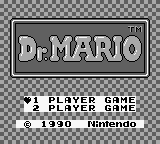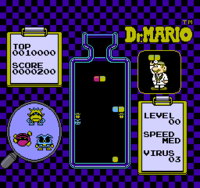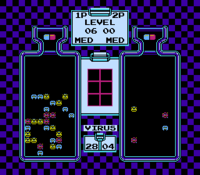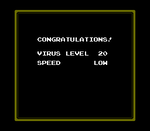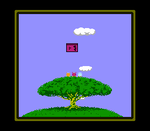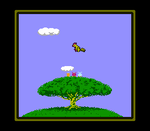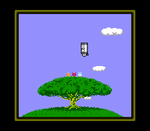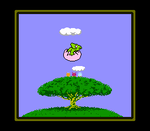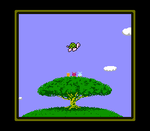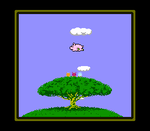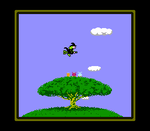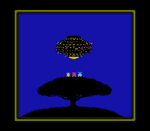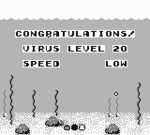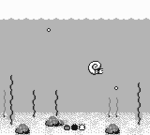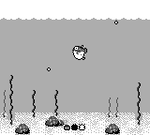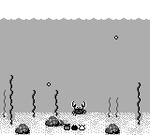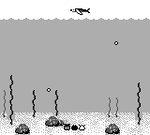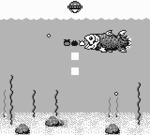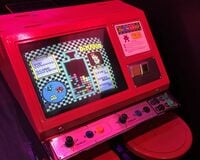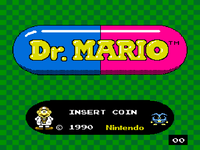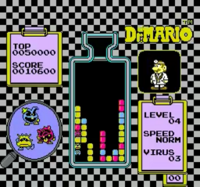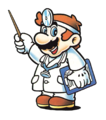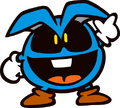Dr. Mario (game): Difference between revisions
No edit summary |
|||
| (349 intermediate revisions by more than 100 users not shown) | |||
| Line 1: | Line 1: | ||
{{ | {{italic title}} | ||
{{about|the game|Mario's doctor persona|[[Dr. Mario]]|other uses|[[Dr. Mario (disambiguation)]]}} | |||
{{game infobox | |||
|image=[[File:DrMarioBox.jpg|250px]]<br>NES box art<br>[[File:DrMarioGBCover.jpg|250px]]<br>Game Boy box art | |||
|developer=[[Nintendo Research & Development 1|Nintendo R&D 1]] | |||
|publisher=[[Nintendo]] | |||
|release='''Famicom/NES:'''<br>{{flag list|Japan|July 27, 1990<ref>{{cite|url=https://www.nintendo.com/jp/famicom/software/hvc-vu/index.html|title=ドクターマリオ|publisher=Nintendo Japan|language=ja|accessdate=August 13, 2024}}</ref>|USA|October 14, 1990<ref>{{cite|author=Sakai, Kazuya, kikai, Rachel Roberts, and Jenny Blenk, editors|date=2019|title=''[[The Art of Super Mario Odyssey]]''|format=First English Edition|location=Milwaukie|publisher=[[Dark Horse|Dark Horse Books]]|isbn=978-1-50671-375-5|page=360}}</ref>|Europe|June 27, 1991|Australia|June 27, 1991}} '''VS. System:'''<br>{{flag list|USA|August 1990<ref name="rpmag">"Nintendo Bows VS. Dr. Mario Pak At San Diego Distributor Meeting" (RePlay Magazine Vol. 16 No. 1, August 1990)</ref>|Australia|1990|Europe|1990}} '''Nintendo PlayChoice-10:'''<br>{{flag list|USA|August 1990<ref name="rpmag"/>|Europe|1990|Australia|1990}} '''Game Boy:'''<br>{{flag list|Japan|July 27, 1990<ref>{{cite|url=https://www.nintendo.co.jp/n02/dmg/vua/index.html|title=Dr. MARIO|publisher=Nintendo Japan|language=ja|accessdate=August 13, 2024}}</ref>|USA|December 1, 1990<ref>''Super Smash Bros. for Wii U'' [[smashwiki:Masterpieces|Masterpieces]]</ref>|Europe|April 30, 1991}} '''[[LodgeNet|LodgeNet (Super NES version)]]''':<br>{{flag list|USA|Unknown year, between 1995 and 1999<ref group=note>Exact date unknown due to no known information. Earliest known document (as of July 10, 2024) about it is from August 29, 1999 (https://snescentral.com/1/0/1/1019/pdf/drmario.pdf). No similar documents for any game was dated earlier than August 1999, at which point LodgeNet installations for [[Nintendo 64]] was in process. The LodgeNet-exclusive ''Noughts & Crosses'' had a copyright year of 1998, but the overall Gateway System launched in 1993.</ref>}} '''Satellaview:'''<br>{{flag list|Japan|March 30, 1997}} '''[[Player's Choice]] (Game Boy Version):'''<br>{{flag list|USA|September 1, 1997<ref>{{cite|url=https://archive.org/details/nintendo-1997-e-3-press-kit|title=Nintendo E3 1997 Press Kit|publisher=Nintendo of America|language=en|accessdate=November 10, 2024}}</ref>}}'''Super Famicom ([[Nintendo Power (cartridge)|NP]]):'''<br>{{flag list|Japan|June 1, 1998<ref>{{cite|url=themushroomkingdom.net/games/drm-np|title=''Dr. Mario'' (NP)|publisher=The Mushroom Kingdom|accessdate=June 1, 2024}}{{better source}}</ref>}} '''Game Boy (NP):'''<br>{{flag list|Japan|March 1, 2000}} '''Game Boy Advance (NES version):'''<br>{{flag list|Japan|May 21, 2004<ref>{{cite|url=www.nintendo.co.jp/n08/fmk2/dr_mario/index.html|title=ファミコンミニ/ドクターマリオ|publisher=Nintendo Co., Ltd.|language=ja|accessdate=January 16, 2025}}</ref>|USA|October 25, 2004<ref>''Super Smash Bros. Brawl'' {{iw|smashwiki|Chronicle}}</ref>|Europe|January 7, 2005<ref>{{cite|url=www.nintendo.com/en-gb/Games/Game-Boy-Advance/Dr-Mario-266584.html|title=Dr. Mario {{!}} Game Boy Advance {{!}} Games {{!}} Nintendo UK|publisher=Nintendo UK|language=en-gb|accessdate=January 16, 2025}}</ref>}} '''[[Virtual Console#Nintendo 3DS|Virtual Console (3DS) (Game Boy version)]]:'''<br>{{flag list|Japan|July 27, 2011|Europe|March 22, 2012|Australia|March 22, 2012|USA|October 4, 2012|South Korea|May 18, 2016}} '''[[Virtual Console#Wii U|Virtual Console (Wii U) (NES version)]]:'''<br>{{flag list|Europe|February 13, 2014|Australia|February 14, 2014|Japan|February 26, 2014|USA|March 27, 2014}} '''NES Classic Edition/Famicom Mini:'''<br>{{flag list|Japan|November 10, 2016|Australia|November 10, 2016|USA|November 11, 2016|Europe|November 11, 2016}} '''Nintendo Entertainment System - Nintendo Switch Online:'''<br>{{flag list|USA|September 18, 2018|Japan|September 19, 2018|Europe|September 19, 2018|Australia|September 19, 2018|HK|April 23, 2019|South Korea|April 23, 2019}} '''''The UFO cover-up. (NES version)'':'''<br>{{flag list|USA|December 12, 2018|Japan|December 12, 2018|Europe|December 12, 2018|Australia|December 12, 2018}} '''Game Boy - Nintendo Switch Online:'''<br>{{flag list|USA|March 11, 2024<ref>{{cite|language=en-us|author=@NintendoAmerica|date=March 11, 2024|url=https://x.com/NintendoAmerica/status/1767362397239443881|title="''Oh yeah! Three classic games featuring Mario are now live for #NintendoSwitchOnline members! #GameBoy: ☑️ Dr. Mario Game Boy Color: ☑️ Mario Tennis ☑️ Mario Golf''"|publisher=X|accessdate=July 4, 2024}}</ref>|Japan|March 12, 2024|Europe|March 12, 2024|Australia|March 12, 2024|South Korea|March 12, 2024|HK|March 12, 2024}} | |||
|languages={{languages|en_us=y}} | |||
|genre=[[Genre#Puzzle games|Puzzle]] | |||
|modes=1–2 players | |||
|ratings={{ratings|esrb=E|pegi=3|cero=A|acb=G|usk=0|classind=L|grac=all}} | |||
|platforms=[[Family Computer]]/[[Nintendo Entertainment System]], [[Game Boy]], [[Nintendo PlayChoice-10|PlayChoice-10]], [[VS. System]], [[Game Boy Advance]], [[Satellaview]], [[Super Nintendo Entertainment System|Super Famicom]]/[[Super Nintendo Entertainment System]], [[Virtual Console]] ([[Nintendo 3DS]], [[Wii U]]), [[Classics#NES Classic Edition|NES Classic Edition]]/[[Classics#Nintendo Classic Mini: Family Computer|Nintendo Classic Mini: Family Computer]], [[Nintendo Entertainment System - Nintendo Switch Online]], [[Game Boy - Nintendo Switch Online]] | |||
|format={{format|fc=1|nes=1|gb=1|3dsdl=1|wiiudl=1|gba=1|arcade=1|snes=1|bsx=1|nesclassic=1|switchdl=1}} | |||
|input={{input|fc=1|nes=1|gb=1|3ds=1|gba=1|wiiu=1|wiiupro=1|wiiuclassic=1|wiiusideways=1|nesclassic=1|joy-con=1|joy-con-horizontal=1|switchpro=1|switchfc=1|switchnes=1|switchsnes=1}} | |||
|serials='''Famicom:'''<br>{{flag list|Japan|HVC-VU}}'''Game Boy:'''<br>DMG-VUA<br>'''Game Boy Advance:'''<br>{{flag list|USA|AGB-FDME-USA|Japan|AGB-FDMJ-JPN|Europe|AGB-FDMP-EUR}} | |||
}} | }} | ||
'''''Dr. Mario''''' is an arcade-style puzzle video game created by Nintendo, and was released for the [[Nintendo Entertainment System]] | '''''Dr. Mario''''' (stylized as '''''D℞. MARIO''''' on the {{wp|Western world|Western}} logo) is an arcade-style [[Genre#Puzzle games|puzzle]] video game created by [[Nintendo]], and it was released for the [[Nintendo Entertainment System]] and [[Game Boy]] in 1990. The gameplay is very similar to that of ''[[Tetris]]'', although in ''Dr. Mario'', the object is to line up vitamins to destroy [[virus]]es. | ||
==Story== | |||
The following text is taken directly from the instruction manual. | |||
<blockquote> | |||
Hi everybody! I'm Mario. How's it going? Over the last few years, I've been involved in some pretty wild adventures. Now, believe it or not, I work in the virus research lab at the Mushroom Kingdom Hospital. Today I'm about to begin my research as usual. | |||
"Dr. Mario, something terrible has happened!" <br> | |||
"What's wrong, nurse Toadstool?" | |||
"One of the experiments has gone out of control. The viruses are spreading quickly!" <br> | |||
"Oh No! We've got to do something! I have just developed a new vitamin that should be able to take care of it. I sure hope this stuff works!" <br> | |||
</blockquote> | |||
[[Dr. Mario]] works in a virus research lab at the [[Mushroom Kingdom Hospital]], alongside [[Princess Peach|Nurse Toadstool]]. When one of the experiments goes wrong, the hospital is flooded with tri-color [[virus]]es. Armed with [[Capsule|vitamin capsule]]s–a medicine of his own invention–Dr. Mario sets out to neutralize the outbreak. | |||
==Gameplay== | ==Gameplay== | ||
[[File:Dr Mario GB title screen.png|thumb|left|Title screen on the Game Boy version]] | |||
In this game, the interface is presented with a giant bottle, which features a grid that is 8 tiles long and 16 tiles tall. When the stage starts, viruses will populate the bottle, and they come in three varieties: Chill (blue), Fever (red), and Weird (yellow). | |||
The main objective of the game is to clear the viruses in the bottle. This objective can be fulfilled with the help of multi-colored capsules called vitamin capsules. The vitamins have two segments, where each half can come in three colors, and both halves can even have the same color. To eliminate a virus with them, they must be lined up with at least one like-colored virus in a column or row so that the line consists of at least four in a row or column. When that happens, both the viruses and vitamins in that line disappear. These vitamins can also be cleared if four or more of the same colored pieces are arranged in a line, even if there are no viruses within them. The viruses remaining is represented by the three viruses under the magnifying glass around the bottom-left, where they slowly revolve along the glass. If at least one virus is eliminated, the corresponding virus color will flinch and the viruses will stop moving. If all viruses of that color are gone from the bottle, that corresponding virus under the glass will also disappear after flinching. After a number of vitamins are brought to the bottle, a five-note chime will be played which will signify that the speed of the capsule drops increased. | |||
If the | If vitamins are stacked so that one of the two middle spots at the top of the bottle is occupied, the player receives a Game Over. | ||
{{br|left}} | |||
==Characters | ==Characters== | ||
* [[Dr.Mario]] ( | *[[Dr. Mario]] (playable) | ||
* [[Virus|Fever]] ( | *[[Virus|Fever]] (enemy) | ||
* [[Virus|Chill]] ( | *[[Virus|Chill]] (enemy) | ||
* [[Virus|Weird]] ( | *[[Virus|Weird]] (enemy) | ||
==Game | ==Game modes== | ||
===1-Player Game=== | ===1-Player Game=== | ||
[[ | [[File:MarioDMNES.png|thumb|left|Single player mode.]] | ||
When a 1-Player game is started, the player | When a 1-Player game is started, the player has three options: Virus Level, Speed, and Music Type. For Virus Level, one of the 21 levels (from 0 to 20) can be chosen. This determines the number of viruses at the beginning is equal to four times the level number plus four, all the way up to level 20. Although the level number can go up to 24 in the Family Computer and Nintendo Entertainment System version, there will always be 84 viruses at the beginning of levels 20 and above.<ref>{{cite|url=www.youtube.com/watch?v=vwp5OoX4jqA|title=Dr. Mario AI Defeats Level 24 and Beyond|author=Michael Birken|date=June 24, 2017|publisher=YouTube|accessdate=June 1, 2024}}</ref> In the Game Boy version, levels above 20 may be arranged in a way that is impossible to beat. Level 28 is a {{wp|kill screen}} in which Mario does not appear. | ||
The Speed setting determines the speed of the vitamins as they fall, which are between: Low, Med (medium), or Hi (high). The Music Type is a choice between [[Fever]], [[Chill]], or Off (no music). For the Game Boy version, the music can be previewed by highlighting the option, whereas this feature is not present in the Family Computer and Nintendo Entertainment System version. | |||
In a 1-Player Game, the score is tracked. In order to earn points, viruses must be eliminated, as just clearing only capsules or forcefully dropping capsules will not contribute to the score. The amount of points earned from eliminating viruses is dependent on the Speed setting, where the base score is 100 for Low, 200 for Med, and 300 for Hi. Additionally, if the player eliminates more than one virus in a single move, the subsequent viruses contribute more points. After clearing all the viruses and finishing the level, the score is carried over to the next level. The basic scoring is as follows: | |||
{{br|left}} | |||
{|width=20% class=wikitable style="text-align:center" | |||
!width=4%|Virus # | |||
!width=9%|Low | |||
!width=9%|Med | |||
!width=9%|Hi | |||
|- | |||
|1||100||200||300 | |||
|- | |||
|2||200||400||600 | |||
|- | |||
|3||400||800||1200 | |||
|- | |||
|4||800||1600||2400 | |||
|- | |||
|5||1600||3200||4800 | |||
|- | |||
|6+||3200||6400||9600 | |||
|} | |||
In the NES version, a fanfare will not sound after clearing more than one line in a single move. However in the Game Boy version, a fanfare will be played depending on the amount of lines made, and a special fanfare is played after clearing four or more lines in a single move, something that is not present in other versions. | |||
{{br|left}} | |||
===2-Player Game=== | ===2-Player Game=== | ||
A 2-Player Vs. game mode is also available for selection. In this mode, two players battle to either clear their grid first, or cause their opponent to get a Game Over. The Level and Speed options are chosen independently by each player before the game begins. | [[File:DMNES2Player.png|thumb|left|2-Player mode in action.]] | ||
A 2-Player Vs. game mode is also available for selection. In this mode, two players battle to either clear their grid first, or cause their opponent to get a Game Over through causing an object to reach the middle of the topmost row. The game ends after one of the players wins three rounds. The Level and Speed options are chosen independently by each player before the game begins. For the Game Boy version, a Game Link cable is required to play the 2-player Vs. game mode. On the 3DS Virtual Console version, 2-player mode is not supported. | |||
During a two-player | During a two-player head-on-head game, whenever a vitamin resulted in a chain or combo with more than one line cleared, a corresponding number of garbage, basically single vitamin pieces of colors based on the colors cleared by a player, will drop into their opponent's bottle at a slow pace, similar to the speed of a capsule falling normally in the Hi speed. The number of garbage that drops depends on the amount of lines cleared, so for example, clearing two lines in a move will cause two pieces to fall. The dropped pieces will simultaneously be either in the odd-numbered columns or even-numbered columns. If two pieces drop, both of them are always four columns apart, and if three pieces drop, they will all be two columns apart of each other and won't be two pieces that will be four columns apart. | ||
{{br|left}} | |||
== | ==Controls== | ||
*{{button|nes|Pad}} / {{button|gb|Pad}}: Move cursor on the menu screen | |||
*{{button|nes|Pad}} / {{button|gb|Pad}} (left/right): Move vitamin capsule | |||
*{{button|nes|Pad}} / {{button|gb|Pad}} (down): Drop vitamin capsule | |||
*{{button|nes|a}} / {{button|gb|a}}: Rotate vitamin capsule clockwise | |||
*{{button|nes|b}} / {{button|gb|b}}: Rotate vitamin capsule counterclockwise | |||
*{{button|nes|start}} / {{button|gb|start}}: Start the game; Pause or unpause game during gameplay, | |||
*{{button|nes|select}} / {{button|gb|select}}: Move cursor on the title screen | |||
==Cutscenes== | |||
After completing certain levels at certain speeds, a short cutscene will occur, along with text that consists of a "CONGRATULATIONS!" message and the Virus Level and Speed that the player has beaten. The cutscenes are different between the NES version and the Game Boy version. If the cutscene has something that moves in it, the text on the screen will disappear or appear depending on the version: they appear before the cutscene is played in the NES version, whereas they start to appear after the cutscene is played in the Game Boy version. | |||
===NES=== | |||
Most of the cutscenes start with the viruses sitting on a tree. Graphics for a snowman and a round ball exist that are likely used in a cutscene, but they ended up unused.<ref>{{cite|url=tcrf.net/Dr._Mario_(NES)#Unused_Sprites|title=Dr. Mario § Unused Sprites|publisher=The Cutting Room Floor|language=en|accessdate=June 1, 2024}}</ref> | |||
{|width=60% class=wikitable style="text-align:center" | |||
!width=4%|Level to beat | |||
!width=1%|Screenshot | |||
!width=20%|Description | |||
!width=4%|Level to beat | |||
!width=1%|Screenshot | |||
!width=20%|Description | |||
|- | |||
|Level 20 (Low) | |||
||[[File:Dr Mario NES Cutscene Level 20 Low.png|150px]] | |||
||Only the "Congratulations!" message will be displayed, as the background is black otherwise. The music played in this cutscene is a shorter, slower, and higher-pitched version of the normal ending theme. | |||
|Level 5 (Med) | |||
||[[File:Dr Mario NES Cutscene Level 5 Med.png|150px]] | |||
||A book flaps its covers from left to right. | |||
|- | |||
|Level 10 (Med) | |||
||[[File:Dr Mario NES Cutscene Level 10 Med.png|150px]] | |||
||A rooster slowly flies from right to left. | |||
|Level 15 (Med) | |||
||[[File:Dr Mario NES Cutscene Level 15 Med.png|150px]] | |||
||An upside-down aerosol is sprayed, quickly propelling from right to left. | |||
|- | |||
|Level 20 (Med) | |||
||[[File:Dr Mario NES Cutscene Level 20 Med.png|150px]] | |||
||A dinosaur in an egg slowly paddles from left to right. | |||
|Level 5 (Hi) | |||
||[[File:Dr Mario NES Cutscene Level 5 Hi.png|150px]] | |||
||A tortoise slowly swims in the air from left to right. | |||
|- | |||
|Level 10 (Hi) | |||
||[[File:Dr Mario NES Cutscene Level 10 Hi.png|150px]] | |||
||A pig uses its tail to propel in the air from right to left. | |||
|Level 15 (Hi) | |||
||[[File:Dr Mario NES Cutscene Level 15 Hi.png|150px]] | |||
||A witch rides her broom to fly from left to right. | |||
|- | |||
|Level 20 (Hi) | |||
||[[File:Dr Mario NES Cutscene Level 20 Hi.png|150px]] | |||
||The sky gradually changes from bright to dark, after which a UFO floats down to beam the three viruses into it, and then it flies away. While the UFO is present, the music pauses until it goes away, after which the music continues. | |||
After the UFO is gone, the sky flashes bright before flashing stars appear and fall from the sky. | |||
|} | |||
===Game Boy=== | |||
Every cutscene starts with the viruses sitting at the sea floor. | |||
{|width=60% class=wikitable style="text-align:center" | |||
!width=4%|Level to beat | |||
!width=1%|Screenshot | |||
!width=20%|Description | |||
!width=4%|Level to beat | |||
!width=1%|Screenshot | |||
!width=20%|Description | |||
|- | |||
|Level 20 (Low) | |||
||[[File:Dr Mario GB Lv20 Low Cutscene.png|150px]] | |||
||Nothing else happens beyond the viruses sitting at the sea floor. | |||
|Level 20 (Med) | |||
||[[File:Dr Mario GB Lv20 Med Cutscene.png|150px]] | |||
||A nautilus slowly swims from right to left. | |||
|- | |||
|Level 5 (Hi) | |||
||[[File:Dr Mario GB Lv5 Hi Cutscene.png|150px]] | |||
||A puffed-up pufferfish slowly swims from right to left. | |||
|Level 10 (Hi) | |||
||[[File:Dr Mario GB Lv10 Hi Cutscene.png|150px]] | |||
||A crab quickly scuttles along the sea floor from right to left. | |||
|- | |||
|Level 15 (Hi) | |||
||[[File:Dr Mario GB Lv15 Hi Cutscene.png|150px]] | |||
||A flying fish flies above the sea from right to left. | |||
|Level 20 (Hi) | |||
||[[File:Dr Mario GB Lv20 Hi Cutscene.png|150px]] | |||
||A UFO flies from the right to the middle, beaming the viruses. While in the middle of being beamed, a coelacanth quickly swims across the viruses to eat them. After the coelacanth swims away, the UFO flees the scene to the right. | |||
|} | |||
==Reception== | ==Reception== | ||
The Game Boy version of the game was placed 45th in the 100th issue of Nintendo Power's "100 best Nintendo games of all time" in 1997.<ref> | The Game Boy version of the game was placed 45th in the 100th issue of Nintendo Power's "100 best Nintendo games of all time" in 1997.<ref>{{cite|title=''Nintendo Power'' Volume 100. Page 94.}}{{page needed}}</ref> | ||
The NES version placed 69th in the 200th Issue of GameInformer's "Top 200 Games of All Times". | The NES version placed 69th in the 200th Issue of GameInformer's "Top 200 Games of All Times". The game placed 51st in IGN's Top 100 NES Games list.<ref>{{cite|url=www.ign.com/top-100-nes-games/51.html|title=51: ''Dr. Mario''|publisher=IGN|accessdate=June 1, 2024}}</ref> | ||
==Remakes== | Reviews for the game were generally positive, although there has been some criticism from parents about the medicine in a children's game. {{wp|ACE (games magazine)|ACE}} in particular was more negative, giving the Game Boy version 510/1000, criticizing the repetitive gameplay and uninspired graphics. They also stated that the game "reeks of plagarism", stating that it was worse than the original games it was modeled after.<ref>[https://ia800604.us.archive.org/view_archive.php?archive=/1/items/World_of_Spectrum_June_2017_Mirror/World%20of%20Spectrum%20June%202017%20Mirror.zip&file=World%20of%20Spectrum%20June%202017%20Mirror/sinclair/magazines/ACE/Issue38/Pages/ACE3800091.jpg]</ref> {{wp|GameRankings}} gave the game 69.25%, while review aggregator {{wp|Metacritic}} gave it a 66 out of 100 based on 10 reviews. | ||
* ''Dr. Mario'' was | |||
* | ==Remakes and ports== | ||
* | ===''VS. Dr. Mario''=== | ||
* ''[[WarioWare, Inc.: | [[File:Dr. Mario VS cabinet.jpg|thumb|Arcade cabinet]] | ||
[[File:Vs Dr Mario Title.png|Title screen|thumb|left]] | |||
[[File:VS. Dr. Mario gameplay.png|thumb|left|Gameplay]] | |||
The game was released on the [[VS. System]] under the name '''''VS. Dr. Mario'''''. This version was first shown at Nintendo's Seventh Annual Distributor Meeting in San Diego, and was released simultaneously with the PlayChoice-10 version in August 1990.<ref name="rpmag"/> Players can spend only 20 seconds on the settings menu. This version drops the Low speed and renames the Med speed to Norm (normal). Normal speed has a grey background while High is now purple. There is no option to turn off the music. | |||
The scoring system is also less generous. In the NES version, the first virus killed by a vitamin capsule yields 200 points (on Medium speed), the second 400, the third 800, the fourth 1600, so each virus is worth twice as much as the last. In the VS. version, the first virus is worth 200, then 400, then 600, then 800, so a virus is worth only 200 points more, and not twice as many points, as the previous virus. | |||
{{br|left}} | |||
===Satellaview=== | |||
A slightly altered version of ''Dr. Mario'' known as '''''Dr. Mario BS Ban'''''「Dr.マリオBS版」was broadcast for the [[Satellaview]] system between March 1997 and June 2000.<ref>{{cite|url=www.youtube.com/watch?v=C-KAMOmQIrU|title=ドクターマリオBS版 VS.COMをプレイしてみた|author=まさと|date=May 17, 2023|publisher=YouTube|language=ja|accessdate=June 1, 2024}}</ref> It has the same graphics and music that was used in the remake from ''[[Tetris & Dr. Mario]]'' which was not released in Japan. The complete game is in the ROM, just locked out.<ref>{{cite|url=tcrf.net/Tetris_%26_Dr._Mario#BS_and_NP_Dr._Mario|title=Tetris & Dr. Mario § BS and NP Dr. Mario|publisher=The Cutting Room Floor|language=en|accessdate=June 1, 2024}}</ref> | |||
===List of re-releases and ports=== | |||
*'''1990''': ''Dr. Mario'' was made available for the [[VS. System]] and [[Nintendo PlayChoice-10]] arcade machines in North America. | |||
*'''1994''': Nintendo released the remake for [[Super Nintendo Entertainment System|SNES]], as a part of the ''[[Tetris & Dr. Mario]]'' cartridge. | |||
*'''2003''': The original Famicom version is ported to [[Game Boy Advance]] through ''[[Nintendo Puzzle Collection]]'', where that version requires a Game Boy Advance. | |||
*'''2004''': Nintendo re-released the original NES version for the [[Game Boy Advance]], as part of the [[Classic NES Series]]. | |||
*'''2005''': Nintendo again released ''Dr. Mario'' for Game Boy Advance, but this time as an enhanced remake in ''[[Dr. Mario & Puzzle League]]''. | |||
*'''2012''': On March 22, 2012, the Game Boy version was released on the [[Nintendo 3DS]]'s [[Virtual Console#Nintendo 3DS|Virtual Console]] in PAL regions and it was released in Japan and North America on October 2nd and 3rd respectively later that year. | |||
*'''2014''': | |||
**''Dr. Mario'' is one of the games that appear in ''[[NES Remix 2]]'' and ''[[Ultimate NES Remix]]''. It is the final challenge in Championship Mode. | |||
**A trial version of the Game Boy game appears as an unlockable [[Super Smash Bros. for Wii U#Masterpieces|Masterpiece in ''Super Smash Bros. for Wii U'']]. | |||
*'''2015''': A trial version of the NES game appears as a "highlight" in ''[[amiibo tap: Nintendo's Greatest Bits]]''. | |||
*'''2016''':The NES and Famicom version of ''Dr. Mario'' is one of the 30 games included in the [[Nintendo Entertainment System#NES Classic Edition|NES Classic Edition]] and [[Family Computer#Nintendo Classic Mini: Family Computer|Nintendo Classic Mini: Family Computer]], respectively. | |||
*'''2018''': The NES version of ''Dr. Mario'' was made available as one of the 20 NES titles at [[Nintendo Entertainment System - Nintendo Switch Online]]'s launch in September 2018, and can be played competitively with other players online.<ref>{{cite|url=www.nintendo.com/us/store/products/nintendo-entertainment-system-nintendo-switch-online-switch|title=Nintendo Entertainment System – Nintendo Switch Online|publisher=Nintendo of America|accessdate=June 1, 2024}}</ref> A special edition titled ''[[Nintendo Entertainment System - Nintendo Switch Online#Dr. Mario: The UFO cover-up.|Dr. Mario: The UFO cover-up.]]'' that starts the player at level 20 and Hi speed was also added on December 12, 2018. | |||
*'''2024''': The Game Boy version of ''Dr. Mario'' was made available for [[Game Boy - Nintendo Switch Online]] on March 11, 2024 in the Americas and March 12 elsewhere, alongside the [[Game Boy Color]] versions of ''[[Mario Tennis (Game Boy Color)|Mario Tennis]]'' and ''[[Mario Golf (Game Boy Color)|Mario Golf]]''. | |||
===Microgames=== | |||
''[[WarioWare, Inc.: Mega Microgame$!]]'' featured a [[microgame]] version of ''[[Dr. Mario (WarioWare, Inc.: Mega Microgame$!)|Dr. Mario]]''. There is also an unlockable mini game version entitled [[Dr. Wario]]. | |||
[[Dr. Mario (WarioWare Gold)|Another microgame]] based on this game appeared in ''[[WarioWare Gold]]'', with twist controls instead of ''Mega Microgames$!''{{'}}s button controls. | |||
[[Dr. Mario (WarioWare: Move It!)|Another microgame]] based on this game appeared in ''[[WarioWare: Move It!]]'' | |||
==Development== | |||
''Dr. Mario'' was originally under the title "''Virus''", which had similar gameplay, but the goal was to cure viruses in a sick animal. What appears to be Nurse Toadstool is also visible in the game.<ref>{{cite|url=x.com/VGArtAndTidbits/status/808922353451302912|title=A look at the prototype for Dr. Mario. During development it was called "Virus" and displayed a window of a sick animal you had to cure.|publisher=X|author=VGArtAndTidbits|accessdate=June 1, 2024}}</ref> | |||
==Gallery== | |||
{{main-gallery}} | |||
<gallery> | |||
DrMarioLesson.png|[[Dr. Mario]] | |||
BlueVirus1.png|[[Virus|Blue Virus]] | |||
RedVirus.png|[[Virus|Red Virus]] | |||
YellowVirus.png|[[Virus|Yellow Virus]] | |||
</gallery> | |||
==Media== | |||
{{Main-media|List of Dr. Mario media}} | |||
{{media table | |||
|file1=DM NES Title.oga | |||
|title1=Title | |||
|length1=0:30 | |||
|file2=DM NES Select.oga | |||
|title2=Select | |||
|length2=0:30 | |||
|file3=DM NES Fever.oga | |||
|title3=Fever | |||
|length3=0:30 | |||
|file4=DM NES Fever Clear.oga | |||
|title4=Fever Clear | |||
|length4=0:23 | |||
|file5=DM NES Chill.oga | |||
|title5=Chill | |||
|length5=0:30 | |||
}} | |||
==Staff== | |||
{{main|List of Dr. Mario staff}} | |||
==Names in other languages== | |||
{{foreign names | |||
|Jpn=ドクターマリオ | |||
|JpnR=Dokutā Mario | |||
|JpnM=Dr. MARIO | |||
|ChiS=马力欧医生 | |||
|ChiSR=Mǎlì'ōu Yīshēng | |||
|ChiSM=Dr. Mario | |||
|ChiT=瑪利歐醫生 | |||
|ChiTR=Mǎlì'ōu Yīshēng | |||
|ChiTM=Dr. Mario | |||
}} | |||
===''Dr. Mario: The UFO cover-up.''=== | |||
{{foreign names | |||
|Jpn=ドクターマリオ 知る人ぞ知るUFO直前バージョン | |||
|JpnR=Dokutā Mario Shiru Hitozo Shiru Yūfō Chokuzen Bājon | |||
|JpnM=Dr. MARIO: "Just Before the UFO Known to the Few" Version | |||
|Fre=Dr. Mario: Conspiration extraterrestre | |||
|FreM=Dr. Mario: Extraterrestrial conspiracy | |||
}} | |||
==Notes== | |||
<references group=note/> | |||
==References== | ==References== | ||
<references/> | <references/> | ||
==External links== | |||
{{NIWA|NWiki=Dr. Mario|SmashWiki=1|StrategyWiki=Dr. Mario}} | |||
*[https://www.nintendo.co.uk/Games/Game-Boy-Advance/Dr-Mario-266584.html Nintendo UK Game Boy Advance site] | |||
*[https://www.nintendo.co.jp/n02/dmg/vua/ Japanese website (Game Boy)] | |||
*[https://www.nintendo.co.jp/n02/shvc/bdmj/ Japanese website (Super Famicom Nintendo Power)] | |||
*[https://www.nintendo.com/jp/famicom/software/hvc-vu/index.html Japanese website (Famicom 40th Anniversary)] | |||
*[https://www.nintendo.co.jp/clv/manuals/ja/pdf/CLV-P-HAAXJ.pdf Japanese Famicom manual] | |||
*[https://www.nintendo.co.jp/clv/manuals/en/pdf/CLV-P-NAAXE.pdf North American NES manual] | |||
{{Super Mario games}} | |||
{{GB}} | {{GB}} | ||
{{Virtual Console}} | |||
{{NSO}} | |||
{{Arcade}} | {{Arcade}} | ||
{{NES}} | {{NES}} | ||
{{ | {{SNES}} | ||
[[Category:Mario Games]] | [[Category:Dr. Mario|*]] | ||
[[Category: | [[Category:Games]] | ||
[[Category: | [[Category:Family Computer games]] | ||
[[Category:Game Boy | [[Category:Nintendo Entertainment System games]] | ||
[[Category:Puzzle | [[Category:Game Boy games]] | ||
[[Category:Satellaview games]] | |||
[[Category:Puzzle games]] | |||
[[Category:1990 games]] | [[Category:1990 games]] | ||
[[Category: | [[Category:1991 games]] | ||
[[Category:Classic NES Series]] | |||
[[Category:Virtual Console games]] | |||
[[Category:Amiibo tap: Nintendo's Greatest Bits]] | |||
[[de:Dr. Mario (Spiel)]] | |||
[[it:Dr. Mario (gioco)]] | |||
Latest revision as of 03:20, January 23, 2025
- This article is about the game. For Mario's doctor persona, see Dr. Mario. For other uses, see Dr. Mario (disambiguation).
| Dr. Mario | |||||||||||||||
|---|---|---|---|---|---|---|---|---|---|---|---|---|---|---|---|
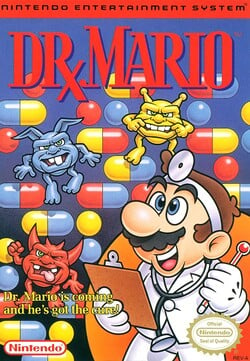 NES box art 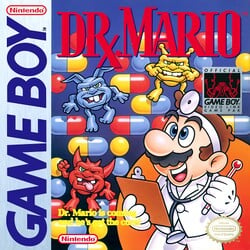 Game Boy box art For alternate box art, see the game's gallery. | |||||||||||||||
| Developer | Nintendo R&D 1 | ||||||||||||||
| Publisher | Nintendo | ||||||||||||||
| Platform(s) | Family Computer/Nintendo Entertainment System, Game Boy, PlayChoice-10, VS. System, Game Boy Advance, Satellaview, Super Famicom/Super Nintendo Entertainment System, Virtual Console (Nintendo 3DS, Wii U), NES Classic Edition/Nintendo Classic Mini: Family Computer, Nintendo Entertainment System - Nintendo Switch Online, Game Boy - Nintendo Switch Online | ||||||||||||||
| Release date | Famicom/NES: VS. System: Nintendo PlayChoice-10: Game Boy: LodgeNet (Super NES version): Satellaview: Player's Choice (Game Boy Version): Super Famicom (NP): Game Boy (NP): Game Boy Advance (NES version): Virtual Console (3DS) (Game Boy version): Virtual Console (Wii U) (NES version): NES Classic Edition/Famicom Mini: Nintendo Entertainment System - Nintendo Switch Online: The UFO cover-up. (NES version): Game Boy - Nintendo Switch Online: | ||||||||||||||
| Language(s) | English (United States) | ||||||||||||||
| Genre | Puzzle | ||||||||||||||
| Rating(s) |
| ||||||||||||||
| Mode(s) | 1–2 players | ||||||||||||||
| Format | Arcade:
Built-in Famicom:
NES:
Super NES: Wii U: Nintendo Switch: Game Boy:
Game Boy Advance: Nintendo 3DS: NES Classic Edition:
Built-in
| ||||||||||||||
| Input | Famicom:
NES:
Wii U: Nintendo Switch: Game Boy:
Game Boy Advance: Nintendo 3DS: NES Classic Edition:
| ||||||||||||||
| Serial code(s) | Famicom: Game Boy: DMG-VUA Game Boy Advance: | ||||||||||||||
Dr. Mario (stylized as D℞. MARIO on the Western logo) is an arcade-style puzzle video game created by Nintendo, and it was released for the Nintendo Entertainment System and Game Boy in 1990. The gameplay is very similar to that of Tetris, although in Dr. Mario, the object is to line up vitamins to destroy viruses.
Story[edit]
The following text is taken directly from the instruction manual.
Hi everybody! I'm Mario. How's it going? Over the last few years, I've been involved in some pretty wild adventures. Now, believe it or not, I work in the virus research lab at the Mushroom Kingdom Hospital. Today I'm about to begin my research as usual.
"Dr. Mario, something terrible has happened!"
"What's wrong, nurse Toadstool?" "One of the experiments has gone out of control. The viruses are spreading quickly!"
"Oh No! We've got to do something! I have just developed a new vitamin that should be able to take care of it. I sure hope this stuff works!"
Dr. Mario works in a virus research lab at the Mushroom Kingdom Hospital, alongside Nurse Toadstool. When one of the experiments goes wrong, the hospital is flooded with tri-color viruses. Armed with vitamin capsules–a medicine of his own invention–Dr. Mario sets out to neutralize the outbreak.
Gameplay[edit]
In this game, the interface is presented with a giant bottle, which features a grid that is 8 tiles long and 16 tiles tall. When the stage starts, viruses will populate the bottle, and they come in three varieties: Chill (blue), Fever (red), and Weird (yellow).
The main objective of the game is to clear the viruses in the bottle. This objective can be fulfilled with the help of multi-colored capsules called vitamin capsules. The vitamins have two segments, where each half can come in three colors, and both halves can even have the same color. To eliminate a virus with them, they must be lined up with at least one like-colored virus in a column or row so that the line consists of at least four in a row or column. When that happens, both the viruses and vitamins in that line disappear. These vitamins can also be cleared if four or more of the same colored pieces are arranged in a line, even if there are no viruses within them. The viruses remaining is represented by the three viruses under the magnifying glass around the bottom-left, where they slowly revolve along the glass. If at least one virus is eliminated, the corresponding virus color will flinch and the viruses will stop moving. If all viruses of that color are gone from the bottle, that corresponding virus under the glass will also disappear after flinching. After a number of vitamins are brought to the bottle, a five-note chime will be played which will signify that the speed of the capsule drops increased.
If vitamins are stacked so that one of the two middle spots at the top of the bottle is occupied, the player receives a Game Over.
Characters[edit]
Game modes[edit]
1-Player Game[edit]
When a 1-Player game is started, the player has three options: Virus Level, Speed, and Music Type. For Virus Level, one of the 21 levels (from 0 to 20) can be chosen. This determines the number of viruses at the beginning is equal to four times the level number plus four, all the way up to level 20. Although the level number can go up to 24 in the Family Computer and Nintendo Entertainment System version, there will always be 84 viruses at the beginning of levels 20 and above.[12] In the Game Boy version, levels above 20 may be arranged in a way that is impossible to beat. Level 28 is a kill screen in which Mario does not appear.
The Speed setting determines the speed of the vitamins as they fall, which are between: Low, Med (medium), or Hi (high). The Music Type is a choice between Fever, Chill, or Off (no music). For the Game Boy version, the music can be previewed by highlighting the option, whereas this feature is not present in the Family Computer and Nintendo Entertainment System version.
In a 1-Player Game, the score is tracked. In order to earn points, viruses must be eliminated, as just clearing only capsules or forcefully dropping capsules will not contribute to the score. The amount of points earned from eliminating viruses is dependent on the Speed setting, where the base score is 100 for Low, 200 for Med, and 300 for Hi. Additionally, if the player eliminates more than one virus in a single move, the subsequent viruses contribute more points. After clearing all the viruses and finishing the level, the score is carried over to the next level. The basic scoring is as follows:
| Virus # | Low | Med | Hi |
|---|---|---|---|
| 1 | 100 | 200 | 300 |
| 2 | 200 | 400 | 600 |
| 3 | 400 | 800 | 1200 |
| 4 | 800 | 1600 | 2400 |
| 5 | 1600 | 3200 | 4800 |
| 6+ | 3200 | 6400 | 9600 |
In the NES version, a fanfare will not sound after clearing more than one line in a single move. However in the Game Boy version, a fanfare will be played depending on the amount of lines made, and a special fanfare is played after clearing four or more lines in a single move, something that is not present in other versions.
2-Player Game[edit]
A 2-Player Vs. game mode is also available for selection. In this mode, two players battle to either clear their grid first, or cause their opponent to get a Game Over through causing an object to reach the middle of the topmost row. The game ends after one of the players wins three rounds. The Level and Speed options are chosen independently by each player before the game begins. For the Game Boy version, a Game Link cable is required to play the 2-player Vs. game mode. On the 3DS Virtual Console version, 2-player mode is not supported.
During a two-player head-on-head game, whenever a vitamin resulted in a chain or combo with more than one line cleared, a corresponding number of garbage, basically single vitamin pieces of colors based on the colors cleared by a player, will drop into their opponent's bottle at a slow pace, similar to the speed of a capsule falling normally in the Hi speed. The number of garbage that drops depends on the amount of lines cleared, so for example, clearing two lines in a move will cause two pieces to fall. The dropped pieces will simultaneously be either in the odd-numbered columns or even-numbered columns. If two pieces drop, both of them are always four columns apart, and if three pieces drop, they will all be two columns apart of each other and won't be two pieces that will be four columns apart.
Controls[edit]
/
: Move cursor on the menu screen
/
(left/right): Move vitamin capsule
/
(down): Drop vitamin capsule
/
: Rotate vitamin capsule clockwise
/
: Rotate vitamin capsule counterclockwise
/
: Start the game; Pause or unpause game during gameplay,
/
: Move cursor on the title screen
Cutscenes[edit]
After completing certain levels at certain speeds, a short cutscene will occur, along with text that consists of a "CONGRATULATIONS!" message and the Virus Level and Speed that the player has beaten. The cutscenes are different between the NES version and the Game Boy version. If the cutscene has something that moves in it, the text on the screen will disappear or appear depending on the version: they appear before the cutscene is played in the NES version, whereas they start to appear after the cutscene is played in the Game Boy version.
NES[edit]
Most of the cutscenes start with the viruses sitting on a tree. Graphics for a snowman and a round ball exist that are likely used in a cutscene, but they ended up unused.[13]
Game Boy[edit]
Every cutscene starts with the viruses sitting at the sea floor.
Reception[edit]
The Game Boy version of the game was placed 45th in the 100th issue of Nintendo Power's "100 best Nintendo games of all time" in 1997.[14] The NES version placed 69th in the 200th Issue of GameInformer's "Top 200 Games of All Times". The game placed 51st in IGN's Top 100 NES Games list.[15]
Reviews for the game were generally positive, although there has been some criticism from parents about the medicine in a children's game. ACE in particular was more negative, giving the Game Boy version 510/1000, criticizing the repetitive gameplay and uninspired graphics. They also stated that the game "reeks of plagarism", stating that it was worse than the original games it was modeled after.[16] GameRankings gave the game 69.25%, while review aggregator Metacritic gave it a 66 out of 100 based on 10 reviews.
Remakes and ports[edit]
VS. Dr. Mario[edit]
The game was released on the VS. System under the name VS. Dr. Mario. This version was first shown at Nintendo's Seventh Annual Distributor Meeting in San Diego, and was released simultaneously with the PlayChoice-10 version in August 1990.[3] Players can spend only 20 seconds on the settings menu. This version drops the Low speed and renames the Med speed to Norm (normal). Normal speed has a grey background while High is now purple. There is no option to turn off the music.
The scoring system is also less generous. In the NES version, the first virus killed by a vitamin capsule yields 200 points (on Medium speed), the second 400, the third 800, the fourth 1600, so each virus is worth twice as much as the last. In the VS. version, the first virus is worth 200, then 400, then 600, then 800, so a virus is worth only 200 points more, and not twice as many points, as the previous virus.
Satellaview[edit]
A slightly altered version of Dr. Mario known as Dr. Mario BS Ban「Dr.マリオBS版」was broadcast for the Satellaview system between March 1997 and June 2000.[17] It has the same graphics and music that was used in the remake from Tetris & Dr. Mario which was not released in Japan. The complete game is in the ROM, just locked out.[18]
List of re-releases and ports[edit]
- 1990: Dr. Mario was made available for the VS. System and Nintendo PlayChoice-10 arcade machines in North America.
- 1994: Nintendo released the remake for SNES, as a part of the Tetris & Dr. Mario cartridge.
- 2003: The original Famicom version is ported to Game Boy Advance through Nintendo Puzzle Collection, where that version requires a Game Boy Advance.
- 2004: Nintendo re-released the original NES version for the Game Boy Advance, as part of the Classic NES Series.
- 2005: Nintendo again released Dr. Mario for Game Boy Advance, but this time as an enhanced remake in Dr. Mario & Puzzle League.
- 2012: On March 22, 2012, the Game Boy version was released on the Nintendo 3DS's Virtual Console in PAL regions and it was released in Japan and North America on October 2nd and 3rd respectively later that year.
- 2014:
- Dr. Mario is one of the games that appear in NES Remix 2 and Ultimate NES Remix. It is the final challenge in Championship Mode.
- A trial version of the Game Boy game appears as an unlockable Masterpiece in Super Smash Bros. for Wii U.
- 2015: A trial version of the NES game appears as a "highlight" in amiibo tap: Nintendo's Greatest Bits.
- 2016:The NES and Famicom version of Dr. Mario is one of the 30 games included in the NES Classic Edition and Nintendo Classic Mini: Family Computer, respectively.
- 2018: The NES version of Dr. Mario was made available as one of the 20 NES titles at Nintendo Entertainment System - Nintendo Switch Online's launch in September 2018, and can be played competitively with other players online.[19] A special edition titled Dr. Mario: The UFO cover-up. that starts the player at level 20 and Hi speed was also added on December 12, 2018.
- 2024: The Game Boy version of Dr. Mario was made available for Game Boy - Nintendo Switch Online on March 11, 2024 in the Americas and March 12 elsewhere, alongside the Game Boy Color versions of Mario Tennis and Mario Golf.
Microgames[edit]
WarioWare, Inc.: Mega Microgame$! featured a microgame version of Dr. Mario. There is also an unlockable mini game version entitled Dr. Wario.
Another microgame based on this game appeared in WarioWare Gold, with twist controls instead of Mega Microgames$!'s button controls.
Another microgame based on this game appeared in WarioWare: Move It!
Development[edit]
Dr. Mario was originally under the title "Virus", which had similar gameplay, but the goal was to cure viruses in a sick animal. What appears to be Nurse Toadstool is also visible in the game.[20]
Gallery[edit]
- For this subject's image gallery, see Gallery:Dr. Mario (game).
Media[edit]
- For a complete list of media for this subject, see List of Dr. Mario media.
| File info 0:30 |
| File info 0:30 |
| File info 0:30 |
| File info 0:23 |
| File info 0:30 |
Staff[edit]
- Main article: List of Dr. Mario staff
Names in other languages[edit]
| Language | Name | Meaning | Notes |
|---|---|---|---|
| Japanese | ドクターマリオ[?] Dokutā Mario |
Dr. MARIO | |
| Chinese (simplified) | 马力欧医生[?] Mǎlì'ōu Yīshēng |
Dr. Mario | |
| Chinese (traditional) | 瑪利歐醫生[?] Mǎlì'ōu Yīshēng |
Dr. Mario |
Dr. Mario: The UFO cover-up.[edit]
| Language | Name | Meaning | Notes |
|---|---|---|---|
| Japanese | ドクターマリオ 知る人ぞ知るUFO直前バージョン[?] Dokutā Mario Shiru Hitozo Shiru Yūfō Chokuzen Bājon |
Dr. MARIO: "Just Before the UFO Known to the Few" Version | |
| French | Dr. Mario: Conspiration extraterrestre[?] | Dr. Mario: Extraterrestrial conspiracy |
Notes[edit]
- ^ Exact date unknown due to no known information. Earliest known document (as of July 10, 2024) about it is from August 29, 1999 (https://snescentral.com/1/0/1/1019/pdf/drmario.pdf). No similar documents for any game was dated earlier than August 1999, at which point LodgeNet installations for Nintendo 64 was in process. The LodgeNet-exclusive Noughts & Crosses had a copyright year of 1998, but the overall Gateway System launched in 1993.
References[edit]
- ^ ドクターマリオ. Nintendo Japan (Japanese). Retrieved August 13, 2024.
- ^ Sakai, Kazuya, kikai, Rachel Roberts, and Jenny Blenk, editors (2019). The Art of Super Mario Odyssey (First English Edition). Milwaukie: Dark Horse Books. ISBN 978-1-50671-375-5. Page 360.
- ^ a b c "Nintendo Bows VS. Dr. Mario Pak At San Diego Distributor Meeting" (RePlay Magazine Vol. 16 No. 1, August 1990)
- ^ Dr. MARIO. Nintendo Japan (Japanese). Retrieved August 13, 2024.
- ^ Super Smash Bros. for Wii U Masterpieces
- ^ Nintendo E3 1997 Press Kit. Nintendo of America (English). Retrieved November 10, 2024.
- ^ Dr. Mario (NP). The Mushroom Kingdom. Retrieved June 1, 2024.[better source needed]
- ^ ファミコンミニ/ドクターマリオ. Nintendo Co., Ltd. (Japanese). Retrieved January 16, 2025.
- ^ Super Smash Bros. Brawl Chronicle
- ^ Dr. Mario | Game Boy Advance | Games | Nintendo UK. Nintendo UK (British English). Retrieved January 16, 2025.
- ^ @NintendoAmerica (March 11, 2024). "Oh yeah! Three classic games featuring Mario are now live for #NintendoSwitchOnline members! #GameBoy: ☑️ Dr. Mario Game Boy Color: ☑️ Mario Tennis ☑️ Mario Golf". X (American English). Retrieved July 4, 2024.
- ^ Michael Birken (June 24, 2017). Dr. Mario AI Defeats Level 24 and Beyond. YouTube. Retrieved June 1, 2024.
- ^ Dr. Mario § Unused Sprites. The Cutting Room Floor (English). Retrieved June 1, 2024.
- ^ Nintendo Power Volume 100. Page 94..[page number needed]
- ^ 51: Dr. Mario. IGN. Retrieved June 1, 2024.
- ^ [1]
- ^ まさと (May 17, 2023). ドクターマリオBS版 VS.COMをプレイしてみた. YouTube (Japanese). Retrieved June 1, 2024.
- ^ Tetris & Dr. Mario § BS and NP Dr. Mario. The Cutting Room Floor (English). Retrieved June 1, 2024.
- ^ Nintendo Entertainment System – Nintendo Switch Online. Nintendo of America. Retrieved June 1, 2024.
- ^ VGArtAndTidbits. A look at the prototype for Dr. Mario. During development it was called "Virus" and displayed a window of a sick animal you had to cure.. X. Retrieved June 1, 2024.
External links[edit]
- Nintendo UK Game Boy Advance site
- Japanese website (Game Boy)
- Japanese website (Super Famicom Nintendo Power)
- Japanese website (Famicom 40th Anniversary)
- Japanese Famicom manual
- North American NES manual
| Game Boy games | |
|---|---|
| Super Mario franchise | Alleyway (1989) • Baseball (1989) • Super Mario Land (1989) • Golf (1989) • Dr. Mario (1990) • Super Mario Land 2: 6 Golden Coins (1992) • Donkey Kong (1994) • Mario's Picross (1995) • Picross 2 (1996) |
| Donkey Kong franchise | Donkey Kong (1994) • Donkey Kong Land (1995) • Donkey Kong Land 2 (1996) • Donkey Kong Land III (1997) |
| Yoshi franchise | Yoshi (1991) • Yoshi's Cookie (1992) • Tetris Attack (1996) |
| Wario franchise | Wario Land: Super Mario Land 3 (1994) • Wario Blast: Featuring Bomberman! (1994) • Wario Land II (1998) |
| Miscellaneous | Tetris (1989) • The Legend of Zelda: Link's Awakening (1993) • Game & Watch Gallery (1997) • Game & Watch Gallery 2 (1997) |
